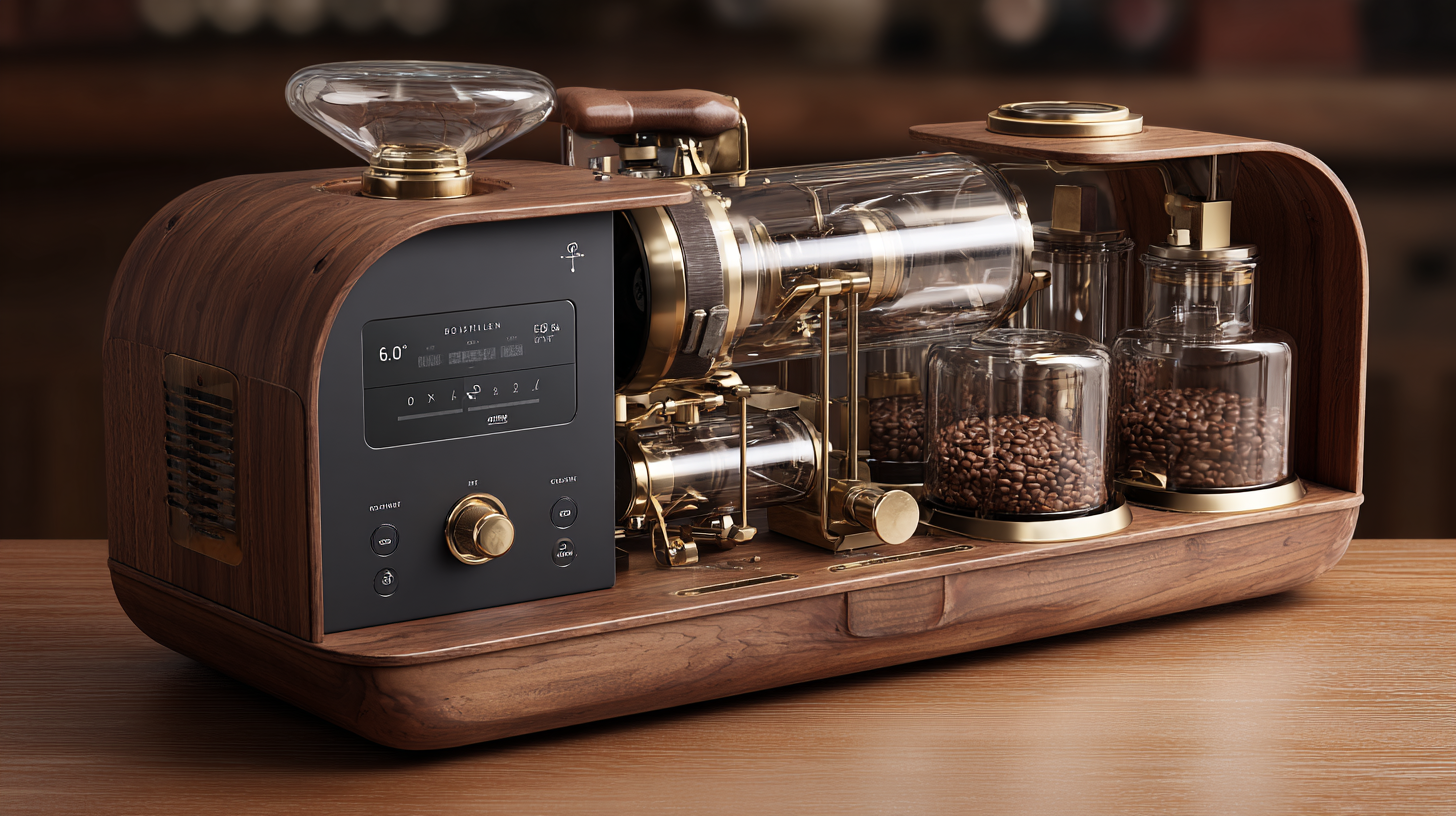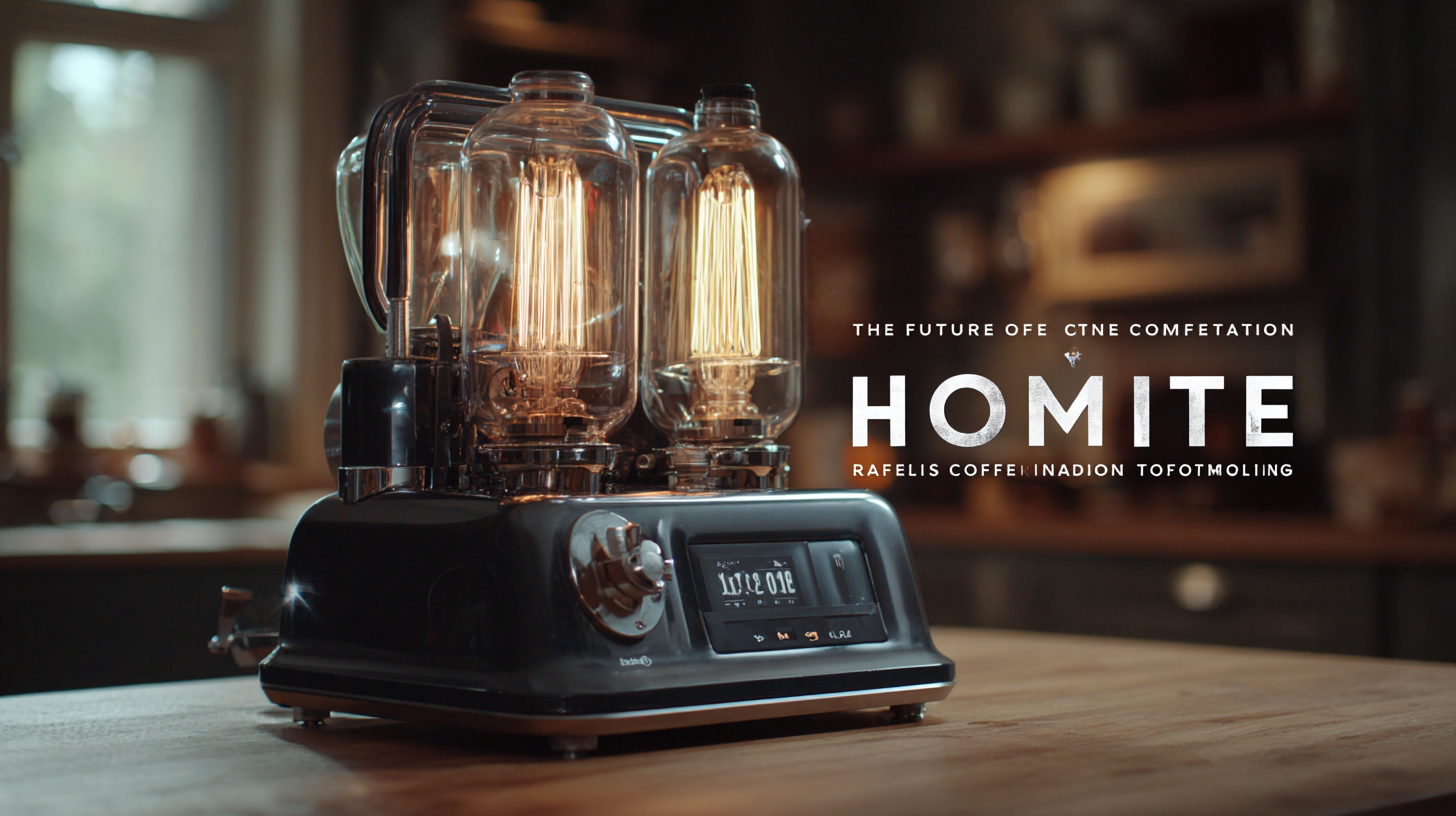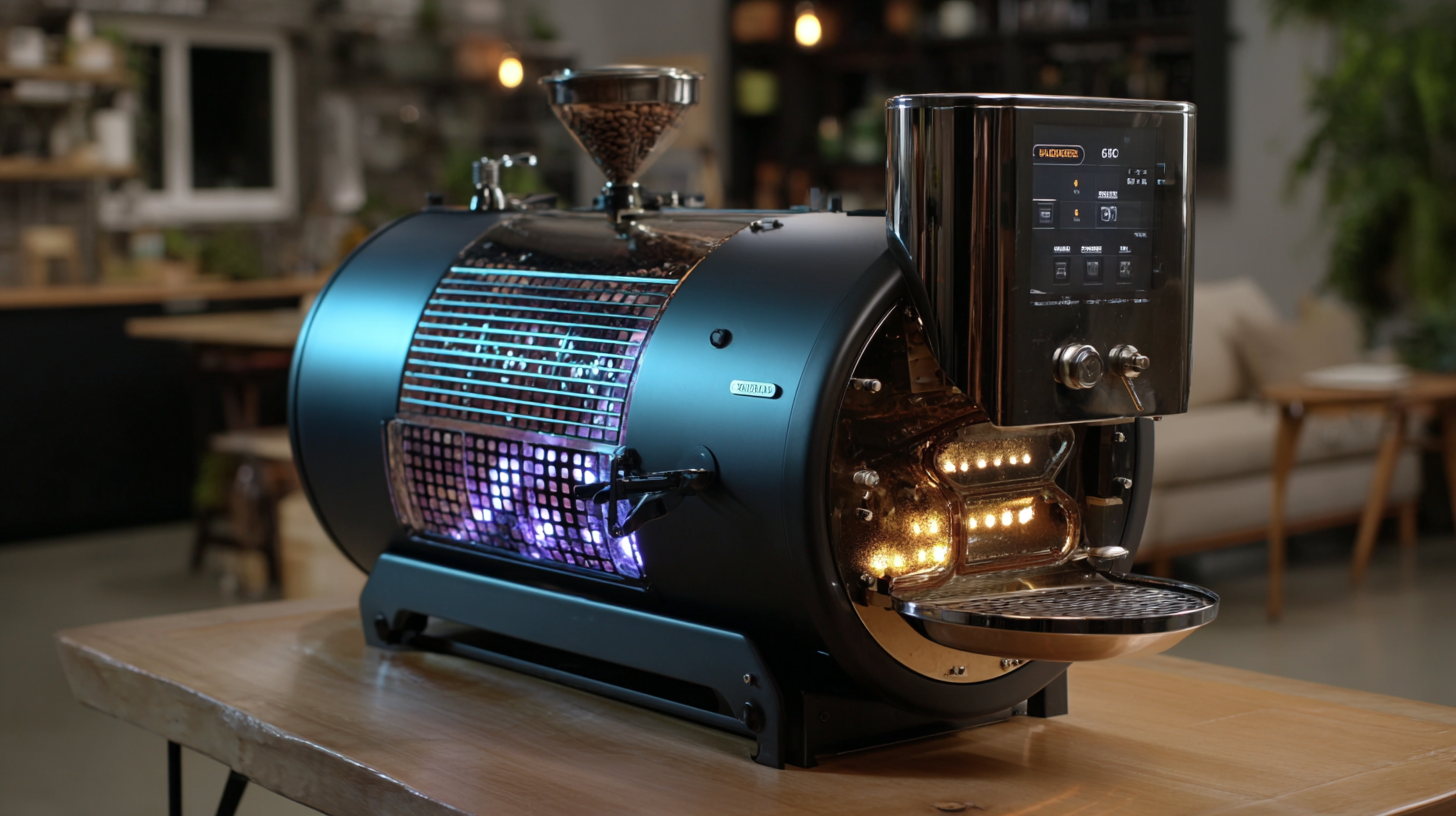The Future of Home Coffee Roasting Innovation and Technology
As the coffee culture continues to evolve, home coffee roasting has emerged as a popular trend, driven by a growing demand for fresh and personalized brews. According to a recent report by the Specialty Coffee Association, the global coffee roasters market is projected to reach $1.4 billion by 2027, reflecting an annual growth rate of 7.9% from 2020. This surge in interest is largely attributed to advancements in technology, leading to the development of sophisticated home coffee roaster machines that cater to both novice and expert roasters. These machines not only enhance the roasting experience but also empower consumers to explore unique flavor profiles from different coffee bean origins. As we look to the future, innovations in home coffee roasting promise to further democratize the craft, making it more accessible than ever and offering coffee enthusiasts the tools to perfect their brewing techniques.

The Growing Popularity of Home Coffee Roasting: Market Trends and Consumer Behavior
The trend of home coffee roasting has seen a significant surge in recent years, driven by coffee enthusiasts seeking control over their brewing process. Consumers are increasingly aware of the unique flavors that different roast profiles can bring out in their favorite beans. This growing interest is reflected in the expanding array of home roasting equipment available on the market, from affordable manual roasters to advanced electric machine options, catering to various skill levels and budgets.

Market trends indicate that more people are transitioning from commercial coffee consumption to home roasting, influenced by social media platforms showcasing DIY roasting techniques and unique flavor explorations.
As home coffee culture evolves, consumers are prioritizing sustainability and sourcing beans directly from ethical producers. This shift not only enhances their brewing experience but also supports a community of responsible growers.
As technologies improve and become more accessible, the future of home coffee roasting is poised for even greater innovation and popularity.
Technological Advancements in Coffee Roasting Machines: A 2025 Market Overview
As we move closer to 2025, the landscape of home coffee roasting is evolving rapidly, driven by cutting-edge technological advancements. Modern coffee roasting machines are now incorporating smart technology, allowing users to monitor and control their roasting processes from their smartphones. Features such as temperature control, real-time diagnostics, and automated roasting profiles are becoming standard, enhancing the roasting experience for both novices and seasoned aficionados alike.
When investing in a home coffee roasting machine, consider choosing one with a user-friendly interface and the ability to save custom roast profiles. This not only helps you achieve that perfect cup but also creates a library of your favorite roasts for future reference.
In addition, look for machines equipped with advanced cooling features that stop the roasting process quickly, ensuring your beans are not over-roasted. This capability not only preserves the beans’ rich flavors but also expands your roasting possibilities, allowing you to experiment with different beans and profiles to discover unique taste combinations. Embracing these innovations will undoubtedly enhance your home roasting journey in the coming years.
The Future of Home Coffee Roasting Innovation and Technology
Sustainability in Home Coffee Roasting: Eco-Friendly Practices and Innovations
In recent years, eco-friendly practices in home coffee roasting have gained significant traction among consumers who prioritize sustainability. The global green coffee market is projected to grow, with its size estimated at USD 34.30 billion in 2023 and a CAGR of 3.93% expected through 2031. This growth reflects a rising awareness of the ecological implications of coffee production and consumption. Home roasters are increasingly seeking sustainable sourcing of their beans and eco-conscious roasting technologies that minimize carbon footprints.

Alongside this, innovations in home roasting equipment are facilitating greener methodologies. Many new devices are designed with energy efficiency in mind, utilizing renewable energy sources and reducing emissions. Additionally, there’s a growing focus on minimizing waste through the use of recyclable materials in packaging and promoting a circular economy within the coffee supply chain. As consumers adopt these eco-friendly practices, they align their passion for coffee with a commitment to environmental sustainability, shaping the future landscape of home coffee roasting.
The Impact of Smart Technology on User Experience in Home Coffee Roasting
As home coffee roasting continues to grow in popularity, the integration of smart technology is revolutionizing the user experience. With advancements in connected devices, coffee enthusiasts no longer rely solely on traditional methods to achieve their ideal roast. Smart roasting machines equipped with sensors and mobile app connectivity allow users to monitor and control every aspect of the roasting process from their smartphones. This innovation not only enhances precision but also ensures that coffee lovers can replicate their favorite profiles consistently.
Moreover, the incorporation of artificial intelligence into coffee roasting machines signals a significant shift in how roasting is approached. These intelligent devices can learn from user preferences, adapting roasting profiles based on past behaviors and environmental conditions. By analyzing real-time data such as temperature and humidity, smart roasters can suggest optimal settings, making the art of roasting more accessible to novices while still providing the sophistication that experienced roasters crave. Ultimately, smart technology is transforming home coffee roasting into an interactive, tailored experience that caters to individual tastes and preferences.
The Future of Home Coffee Roasting Innovation and Technology - The Impact of Smart Technology on User Experience in Home Coffee Roasting
| Feature | Description | Impact on User Experience | User Feedback Rating (1-5) |
|---|---|---|---|
| Smart Connectivity | Integration with smartphones for remote control and monitoring. | Increases convenience and allows for custom roasting profiles. | 4.5 |
| Automated Roasting Profiles | Pre-set roasting profiles to simplify the roasting process. | Reduces learning curve for beginners; consistent results. | 4.7 |
| Real-Time Monitoring | Live data on temperature and roast progression. | Enhances engagement and allows adjustments during roasting. | 4.6 |
| User-Friendly Interface | Intuitive touchscreen controls and mobile app design. | Makes roasting approachable for less technical users. | 4.8 |
| Sustainability Features | Options for energy-efficient roasting and eco-friendly materials. | Appeals to environmentally conscious consumers. | 4.4 |
Emerging Players and Competitive Landscape in the Home Coffee Roasting Market by 2025
The home coffee roasting market is on the brink of significant transformation, driven by innovation and emerging players. According to a recent study by Custom Market Insights, the U.S. coffee market is poised to reach a staggering USD 150.88 billion by 2024. This growth is augmented by the increasing popularity of specialty coffee, with the U.S. specialty coffee market projected to grow at a CAGR of 9.5% from 2025 to 2030, reaching an estimated USD 47.8 billion. This surge is reflective of a shift in consumer preferences towards higher-quality coffee and personalized brewing experiences.
In parallel, the coffee roaster market is also experiencing rapid expansion. Insights reveal that the coffee roasters market size is anticipated to reach USD 4.06 billion by 2032, growing at a CAGR of 6.68% during the period from 2024 to 2032. This increase is largely driven by the rising demand for specialty coffee, as more consumers seek to roast their own beans at home, enabling them to customize flavor profiles and freshness. As new technologies and innovative roasting solutions emerge, the competitive landscape for home coffee roasting will become increasingly dynamic, with both established brands and new entrants vying for market share.


